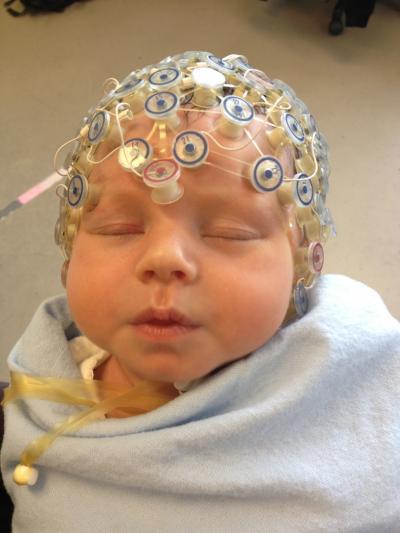Even 20 minutes of moderate exercise a few times per week during pregnancy enhances the newborn child's brain development, according to a new paper.
In the past, obstetricians would tell women to take it easy and rest during their pregnancy. Now it is now commonly accepted that too much inactivity is more of a health concern and so for women not at risk of losing a pregnancy, some exercise is recommended. And it may have a benefit for the baby as well.
"Given that exercise has been demonstrated to be beneficial for the adult's brain, we hypothesized that it could also be beneficial for the unborn child through the mother's actions," says study co-author Professor Daniel Curnier of the University of Montreal.
To verify this, starting at the beginning of their second trimester, women were randomly assigned to an exercise group or a sedentary group. Women in the exercise group had to perform at least 20 minutes of cardiovascular exercise three times per week at a moderate intensity, which should lead to at least a slight shortness of breath. Women in the sedentary group did not exercise. The brain activity of the newborns was assessed between the ages of 8 to 12 days, by means of electroencephalography, which enables the recording of the electrical activity of the brain.

This probably is not helping him sleep. Credit: Universite de Montreal
"We used 124 soft electrodes placed on the infant's head and waited for the child to fall asleep on his or her mother's lap. We then measured auditory memory by means of the brain's unconscious response to repeated and novel sounds," said co-author and University of Montreal PhD candidate Élise Labonté-LeMoyne. "Our results show that the babies born from the mothers who were physically active have a more mature cerebral activation, suggesting that their brains developed more rapidly."
"While animal studies have shown similar results, this is the first randomized controlled trial in humans to objectively measure the impact of exercise during pregnancy directly on the newborn's brain. We hope these results will guide public health interventions and research on brain plasticity. Most of all, we are optimistic that this will encourage women to change their health habits, given that the simple act of exercising during pregnancy could make a difference for their child's future," said Professor Dave Ellemberg, who led the study.
The researchers are now in the process of evaluating the children's cognitive, motor and language development at age 1 to verify if these differences are maintained.




Comments